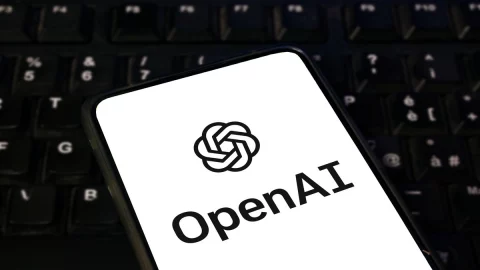The weight of the spelling typo
In regards to the spelling typo, readers are divided into three equal wedges. A third absolutely does not tolerate it and considers it, in almost all contexts, a negligence that badly connotes its author and the content that hosts it, regardless of its quality which fades into the background. For example, the reviewers of the Economist, the most snobbish magazine on the planet, in the section dedicated to books do not fail to point out, with a certain cynicism, the presence of a problem of this type, forgetting that there are errors in their magazine too.
Another third easily tolerates it as an inevitable consequence of our times, like the annoying leaves in the garden after the north wind.
The other third doesn't even notice it. I personally belong to this third category, but many of my friends are in the first. I am too focused on the content to notice the spelling which is automatically corrected by the mental spell checker. I understand that is a solipsistic attitude.
The breakdown varies quite a lot if we look at the type of content. For books that cost more than 15 euros, such as textbooks, university books, a large part of non-fiction and novelty fiction and illustrated books, the spelling typo is often really disturbing and is considered a manufacturing defect like the speck of sand in the glass. This sentiment diminishes as the price falls. In a book, however, there is always something disturbing for the reader. To such an extent that Amazon, which has a solution for everything, has taken over a hangar in Bangalore where, assisted by algorithms, thousands of controllers of Indian nationality sift books to catch spelling errors and report them to Amazon, which in turn forwards to publishers/authors with the threat of putting a negative tick on the book listing in your online bookstore. Spelling purists, who are generally also Amazon's enemies, have to pay tribute to the e-commerce giant here.
In the periodical press and information sites, spelling is now optional and no longer horrifies any reader. Journalists do their best to avoid typos and other errors, but now there are no colleagues in the designated area to check the product of their typing. Those areas have become “lease spaces”.
The social world is the factory of typos, but a large part of the intensive users of social media belong to the third category, without even realizing it. It's other things they look up to that whet their appetite.
Epic typos
Now there are also presidential typos. Of course we are talking about Trump, who, unusually for him, is in good company. It is said that George Washington and Abraham Lincoln were a bit sloppy with their spelling. However, that hasn't stopped them from being great presidents and having their faces carved on a mountain.
William Shakespeare and Jane Austen spelled their names incorrectly. Even Hemingway, expert word welder, had a vague idea of their spelling. The Futurists and Dadaists elevated the typo to the maximum expression of creativity. Marinetti spoke of "free expressive spelling" and "words in freedom". A forerunner of Twitter. Even Svevo, without being a futurist, was rather libertarian with spelling and syntax, but this did not prevent Montale, who used words like a sniper, from appreciating their great literary value.
In 1631 Robert Barker and Martin Lucas, printers in London (on royal commission) of the Bible of St James, were imprisoned in the Tower of London for a "non" omitted in the listing of the 10 commandments: the ninth commandment had become "You shall commit adultery". It is said that it was not so much a negligence as an act of sabotage of the competition, which was successful: the Backer printing house in fact went out of business.
In general, editions with typos become sought-after antiques and their value is higher than that of non-defective copies. One of the remaining 10 copies of the 1631 bible (called the "Sinner's Bible") fetched £15 at auction. Anyone interested in knowing the ten worst typos in the Bible can enjoy the article of the same name published in the Guardian.
When in 1937 D'Annunzio rereading his complete work, just printed by Mondadori without sparing expense, came across "Basilisco" instead of "Basilico" in Francesca da Rimini, he threw himself into a fury to reread the whole body of his opus magnum, recognizing a handful of typos in the 49 volumes published by Mondadori. So he summoned a torcoliere to the Vittoriale and had three or four copies printed at his own expense without the typos with a plaquette in scorn of the good Angelo Sodini guilty of not having adequately supervised the work due to that "handful of horrendous typos that disfigured the Opera".
For centuries, bringing words to an audience capable of receiving them was the prerogative of an aristocratic elite. A handful of clerics and entrepreneurs have taken on the task of filtering the contents to be published. The result was a highly selected supply chain that has repeated its rituals for centuries. In this elitist industry, rather exclusive and often subjugated to interest groups, the typo or spelling error hardly seeped into the contents intended for the
public. Public education then elevated orthography to the same level as mathematics, perhaps a step above, thanks to Croce and Gentile, when the entrance to the Platonic Academy was written "Don't enter those who don't know geometry".
This publishing model has gone untouched in the age of the mass media which have only quantitatively expanded the offer as a result of total literacy and compulsory education.
Today it's easier not to fail spelling
All this held up until the year XNUMX, when the web and the advent of social media threw down every partition between writing and publishing, which had become two moments of the same instant. Even the superior and lofty status of writing over speaking has undergone a brutal leveling to which the survivors of the age of mass media have yet to get used to.
Yet we are still faced with a paradox with the Internet. Writing correctly has never been so easy and all it takes is a shred of desire to do it. Spelling, grammar and even syntactic checkers are now incorporated into every writing tool and also work while typing words, often, but not always, suggesting the correct spelling. For example, the iPhone checker automatically replaces “sa” with “it's coming”. Has anyone told Tim Cook or Luca Maestri that he is Italian? And if there's a doubt that the spartan nature of the concealer fails to resolve, you can google the term and rely on the wonderful function "were you looking for..." and generally guess it. Thanks for existing, Google.
These are all small big actions that would also help improve the health of the first class of classical high school who suffer from orthographic syndrome, due to the blows they took from the Italian, Latin and Greek teachers, and who would receive some relief from having a formally correct text before your eyes. Alternatively, another very elementary act would be sufficient, reading what has been written. Both of these actions would also be a gesture of civic virtue and respect for the people we are addressing.
But the immanence and compulsion to publish, which has become almost an instinctive action of a Pavlovian nature, leaves no time and mental space for spelling. So it will be good to get used to the trampling of spelling by the herd of digital natives.
Criticizing spelling is elitist
There is an even deeper elitism underlying the criticism of spelling misuse in the age of self-publishing. It is the correlation of spelling with the degree of education and intelligence, a relationship that, in reality, does not exist.
There is no scientific evidence to suggest such a thing. In the same way that some have a flair for arithmetic, others are more prone to spelling than their peers (some people have lexical impairments, such as dyslexia, which make spelling particularly difficult). While you may be good at spelling, you may be a genius at other things, and conversely if you're a genius at spelling you may be genius at other things.
Compared to number errors, spelling errors attract more attention. When Obama declared that he had visited 57 states and that there were still two to go, everyone except his staunchest opponents understood that it was a memory lapse. But when Dan Quayle (vice president with Bush senior) declared that "potato" was spelled "potatoe", his career came to an end, because everyone thought that the vice president was an idiot.
In Does Spelling Matter Simon Horobin, a professor of English at Magdalen College, Oxford, says that people aren't always so cantankerous about spelling. Standard spelling came with technological advancement – i.e. typography which required a uniform and shared way of spelling words. So for much of the 18th and 19th centuries spelling was the preserve of printers alone. Common people used theirs in private correspondence and diaries. This was also true for presidents who were rather sloppy with their use of words. Abraham Lincoln, for example, got nearly every word wrong including the names of Civil War battlefields (“Fort Sumpter” instead of “Sumter”); he spelled “inaugural” as “inaugeral” and confused “emancipation” and “immancipation.”
It was only in the 20th century, when spelling became a curriculum in modern public education, that the ability to memorize how certain words were spelled began to gain social consideration.
It immediately became the unit of measurement of education and social status – says Horobin -. There is a misconception about what spelling is. It's essentially a memory test, a machine learning exercise, but we consider it much more than that.
Focusing on spelling prevents you from liking the content
It has only been a few hundred years since standardized spelling has governed our communication. It has been very useful to us. Therefore I think that the idea of abandoning it, or relaxing on its use, is terrifying and constitutes the first step on a short path towards the decline of our civilization. This is obvious, but I close with two things.
The first. Sloppiness is encouraged rather than deterred by our writing devices, although as we have seen, there is no shortage of tools to keep spelling under control.
The second. There is no shortage of scientific evidence to demonstrate a correlation between misspelling on electronic devices and other language dysfunctions. In fact, a study shows that kids who use Testese frequently tend to be better at grammar than those who don't.
All of this suggests that we simply place too much emphasis on spelling and other typographical errors. We need to focus on what one writes, not how the spelling is. horobin said:
It can be seen on Twitter. When someone posts something really awful – racist or homophobic – and a lot of people reply with an “aha”, I notice that the possessive pronoun was misused and therefore because of that mistake it's not even worth wasting time to reply to that content because whoever wrote it is a goat. It seems to me that the concept is not understood in this way. A racist tweet is a racist tweet, whether well or badly written.
So let's focus on the content, not the spelling.




